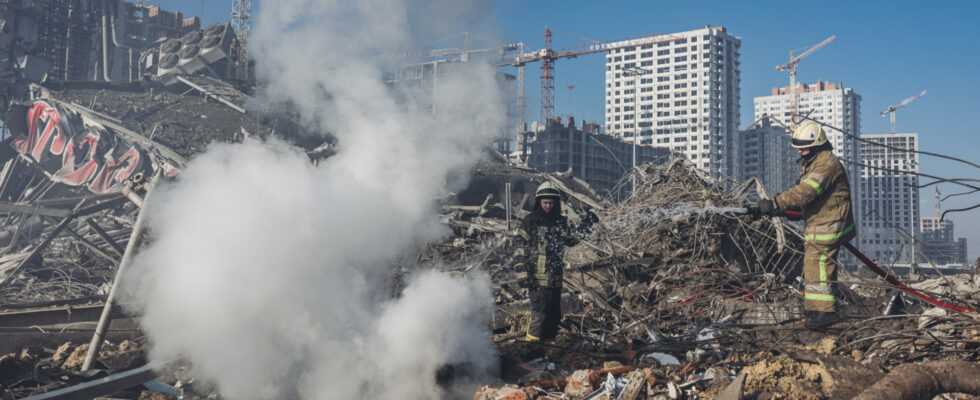Nicolas Tonev (in kyiv), edited by Gauthier Delomez
modified to
10:14 a.m., March 22, 2022
Normality, then a detonation and the car alarms to get over it. Every day, bombs, shells, but above all Russian missiles, or what remains of them after interceptions by the anti-aircraft defense, fall on kyiv, the capital of Ukraine, and mainly on the western districts of the city. closest to the front. Rockets, Ukrainian anti-aircraft missiles against missiles arriving from Russian positions: this confrontation in the sky between destruction devices led in particular to the end of the Vinogradar district, located on the borders of the capital, seven kilometers from the Irpin front, to live in a constant din of explosions.
The trajectory of an anti-aircraft missile over kyiv.
Credits: Nicolas Tonev/Europe 1
The habit of the sounds of explosions
In this neighborhood, the impassive gardener, Larissa, is starting to get used to it. “And yes, the sound of peace and that of war, it’s horrible of course, but what to do?”, she asks at the microphone of Nicolas Tonev, special envoy of Europe 1 in Ukraine. What to do ? Larissa knows it: she continues to work with Irina and Sveta. “It’s important to remove the leaves, it must stay clean,” says the first. “We have already decided to have a banquet for the victory here, so it must be clean”, continues the second, while Larissa asserts: “We respect our traditions.”
Credits: Nicolas Tonev/Europe 1
Nicolas Tonev explains that 22 minutes and 15 seconds of recording were enough for the microphone to capture all the explosions to produce this report. This shows an idea of the sonic harassment caused by missile departures, explosions in the sky and more rarely on the ground.
Some residents crack
Further in the district, Rouslan and Lioubov examine a building affected: “It was a shell or a shrapnel that did that”, explains Rouslan at the microphone of Europe 1, which continues: “As time passes, we want get used to, because we want to sleep, we want to eat, we want to live!” His partner agrees: “In the family, it is no longer acceptable to say ‘It’s calm’ because it is enough to say it for the building to shake or whatever.”
A little further on, Liouba points out that “these sounds are integrated. That doesn’t mean it’s normal, but you get used to it, you’re made like that”. The wave then breaks, the most fragile inhabitants crack. The west of the Ukrainian capital already looks like a front.

